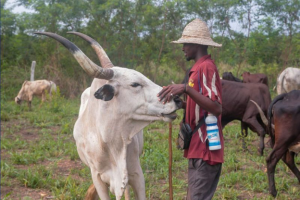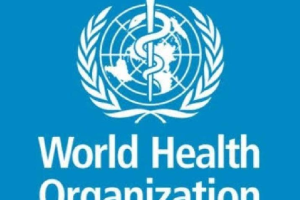Kenya, Somalia, Algeria and Tunisia are experiencing the fourth wave of the coronavirus pandemic, the Africa Centres for Disease Control and Prevention (Africa CDC) says.
Another 33 countries are battling the third wave, which means they are encountering significantly higher cases than those of the first and the second waves. “This points to how things will continue to unfold,” warned Africa CDC director Dr John Nkengasong during a weekly Covid-19 briefing on Thursday.
He said with the Delta variant and others have ravaged the continent, and asked African states to prepare themselves to achieve a vaccination target of 30 percent by the end of this year.
“What we need to remember is that the ancestral virus that the first person caught last year had a reproductive ratio capacity of only 2.5, which means one person infected was able to spread it to two and a half more people, but now the delta variant has a reproductive value—which we call the arrow north of about six to eight — which means that one person infected can spread it to six to eight more people. So we need to factor that into where we need to be to achieve our herd immunity.”
As of August 12, 7.1 million cases of Covid-19 had been reported on the continent, with 179,000 deaths recorded across the 55 member States — a case fatality ratio of 2.5 percent. As far as the global comparison goes, Africa represents 4.2 percent of all global deaths.
South Africa continues to lead with the highest caseload of infections at 36 percent, followed by Morocco, 10 percent, Tunisia 9 percent, and Egypt and Ethiopia 4 percent.
The Delta variant has spread in 30 countries. Over the past one week, between August 2 and 8, Africa recorded 270,000 new cases representing a 1 percent decrease from the previous week. A total of 6,300 new deaths have been reported across the continent last week and this represents a 1 percent decrease in the total number of deaths.
But between July 12 and August 8, there has been a one percent average decrease in new cases over the continent. Across regions there was a 31 percent increase in West African 11 percent increase in North Africa, 8 percent increase in East Africa, 10 percent decrease in southern African and two percent, decrease in Central Africa.
Over the same period there was a four percent average increase in new deaths across the continent, with Nigeria registering (100 percent), Kenya (56 percent), Ethiopia (37 percent), DRC (34 percent), South Africa (2 percent) all registering average increases, but Egypt recording a 16 percent average decrease in the number of deaths. According to Dr Nkengasong the continent is experiencing a very high rate of positivity at 11.5 percent.
“At least 31 countries are reporting positivity rates that are higher than even 12 percent. That doesn’t bode well for control.”
This is despite 114 million Covid-19 doses having arrived on the continent, with having administered only 77.3 million. This is a coverage of only 1.75 percent but with hopes to vaccinate 30 percent of its population by the end of this year and 60 percent by the end of next year.
“Now that vaccines are beginning to flow steadily on the continent, what would be a tragedy is that vaccines arrive on the continent, and we struggle to immunise our people. I think that history would judge us very poorly,” he said.
Morocco leads on the continent with 30.45 percent fully vaccinated, Tunisia 10.5 percent, Egypt 1.83 percent, Nigeria 0.68 percent and South Africa 0.57 percent. He denied claims that there was widespread vaccine hesitancy on the continent saying acceptance rate according to a study carried out on the continent was between 60 percent to 95 percent. “Overall, as a continent, I don’t think vaccine hesitancy is the challenge…. Vaccine predictability and access is the real challenge,” he said.
“This is a virus that is spreading very quickly, unpredictable and uncertain trajectory. The US has had about 50 percent of its population vaccinated and yet now they are faced with resurgence challenges. We don’t want to see that happen here.”
He said were Africa to do at least 25 to 30 percent of its vaccination by the end of the year, then the vast majority of at least half of its target will have been achieved, which would begin to minimise the spread of the virus to allow for economies to fully unlock.
Meanwhile, the Kenyan government has allowed public service vehicles to resume full capacity service amid concerns of risk of the more contagious Delta variant, but also directed that all civil servants be vaccinated.
Source: The East African
The Ethiopian Herald August 21/2021



